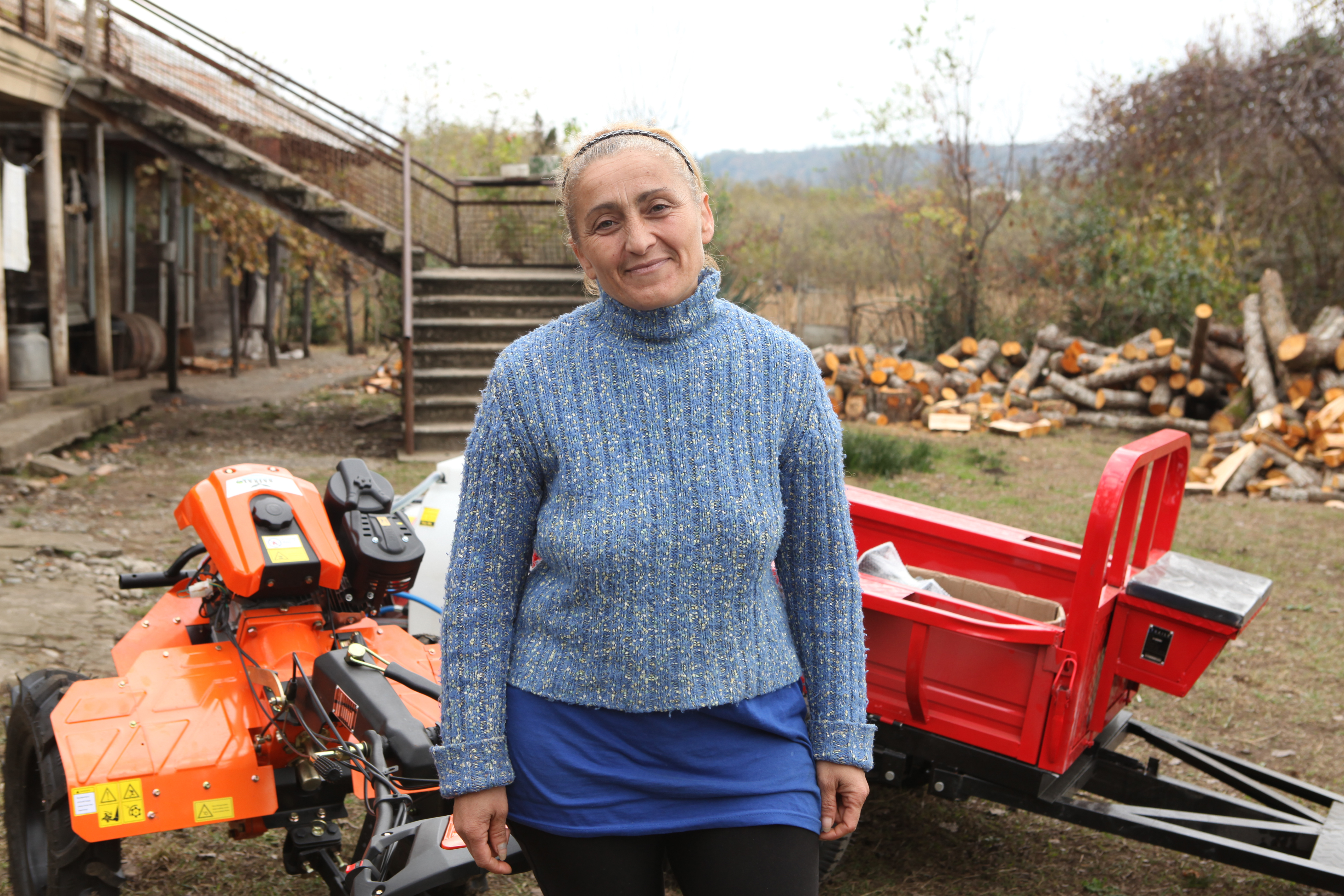UNDP wraps up two years of assistance focused on women, youth and elderly from conflict-affected communities
Supporting conflict-affected communities during the pandemic and beyond
December 13, 2021
Photo: Nino Zedginidze/UNDP
To support socio-economic recovery from the COVID-19 pandemic, UNDP extended its assistance to the vulnerable communities whose livelihoods have been threatened by the pandemic-induced shocks. This support included internally displaced persons (IDPs) and vulnerable communities residing in the proximity of conflict divides. In 2020-2021, UNDP implemented a US$600,000 initiative with a special focus on assisting internally displaced women, youth and the elderly.
The results of this support were presented on 13 December, at an event organised by UNDP in partnership with the Agency of Internally Displaced Persons, Ecomigrants and Livelihood. Local civil society organizations working on the IDP issues, state agencies and private companies attended the presentation.
Specific projects carried out in cooperation with state agencies and local civil society organisations – CARE Caucasus, Atinati, Charity Humanitarian Centre "Abkhazeti" (CHCA), IDP Women’s Association “Consent”, Education Development and Employment Center (EDEC) and Georgian Innovation and Technology Agency (GITA), focused on communities living in the IDP collective centres and the areas adjacent to conflict divides.
This included an assessment of the pandemic impacts on conflict-affected women and girls, carried out in partnership with the Public Defender’s Office. Recommendations stemming from the research will inform policy response to the pandemic. UNDP support also focused on expanding access to hygiene, sanitation, learning and counselling for IDP women and on promoting youth participation in the development and delivery of the COVID-19 response.
“People affected by conflict are among the most vulnerable in Georgia. COVID has hit them particularly hard. That why we focused on practical help – e-learning tools for children, helping to fix essential water and sanitation systems. We supported local women entrepreneurs with start-up and expansion financing. I’m pleased to see this work carried out in close cooperation with Government and local authorities,” said UNDP Head Nick Beresford.
To better address the needs of internally displaced persons, earlier this year UNDP signed a Memorandum of Understanding with the Agency of Internally Displaced Persons, Ecomigrants and Livelihood. In the framework of this cooperation, UNDP supported the Agency with technical expertise and equipment to support the delivery of its services.
“Georgian government actively cooperates with UNDP and partners in designing sustainable models to ensure that at-risk communities receive vital services during the pandemic and beyond. The initiatives discussed today contributed significantly to alleviating the immediate shocks caused by the pandemic and supported the long-term improvement of livelihoods of the vulnerable groups in Georgia,” said Besarion Simonishvili, Director of the Internally Displaced Persons, Ecomigrants and Livelihood Agency.
Specific interventions carried out with UNDP support included the opening of 10 e-learning community centres in the Shida Kartli, Imereti and Samegrelo-Zemo Svaneti regions which provided internally displaced women and girls with an opportunity to work and study during the lockdowns. The assistance also covered 35 quick-fix infrastructure projects improving water and sanitation facilities at IDP collective centres.
20 conflict-affected women received assistance from UNDP to start or expand their businesses. To help women and youth from vulnerable communities find jobs, UNDP supported entrepreneurship and marketing training, provided paid internships in cooperation with local businesses, and trained 45 young people in communication, human rights and conflict resolution. The assistance increased the resilience of conflict-affected households and contributed to youth and women’s economic empowerment.
The assistance draws on funds made available by UNDP since the COVID-19 outbreak to help countries address emergency needs, strengthen crisis management and promote sustainable recovery from the socio-economic impact of lockdowns and border closures.
Media contacts
- Sophie Tchitchinadze, UNDP, +995 599 196907, sophie.tchitchinadze@undp.org
- Magda Nowakowska, UNDP, +995 598 822544, magdalena.nowakowska@undp.org

 Locations
Locations




